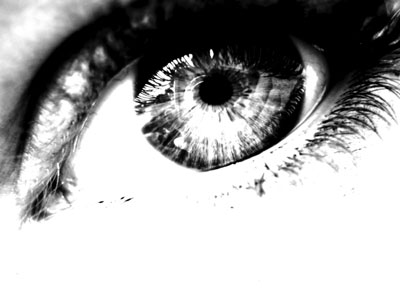All Nonfiction
- Bullying
- Books
- Academic
- Author Interviews
- Celebrity interviews
- College Articles
- College Essays
- Educator of the Year
- Heroes
- Interviews
- Memoir
- Personal Experience
- Sports
- Travel & Culture
All Opinions
- Bullying
- Current Events / Politics
- Discrimination
- Drugs / Alcohol / Smoking
- Entertainment / Celebrities
- Environment
- Love / Relationships
- Movies / Music / TV
- Pop Culture / Trends
- School / College
- Social Issues / Civics
- Spirituality / Religion
- Sports / Hobbies
All Hot Topics
- Bullying
- Community Service
- Environment
- Health
- Letters to the Editor
- Pride & Prejudice
- What Matters
- Back
Summer Guide
- Program Links
- Program Reviews
- Back
College Guide
- College Links
- College Reviews
- College Essays
- College Articles
- Back
“The Way We See It”
Sometimes color speaks in black and white.
Oblivion can tell you why.
Magical, creative, filled with life.
Except not.
To understand fully, you need to be aware of the unknown.
Imagine the unimaginable.
Mark the page.
Escape into the words, the most important right.
See the world from a new light.
The truth is in the mind of a child.
Honest and complete.
Egotistical adults cannot be so sweet.
And this is Max’s story.
Nazis and danger on every corner, yet the true enemy is neither.
Secret deception and persuasion embedded in the words.
Waterlogged with ignorance.
Escaped from violence to discover corruption.
Reality proves this to be the true disruption.
Young minds question the unquestionable.
Observing the little things.
Understanding what adults never bring.
Courageous in the sense that they love unconditionally.
And this is Liesel’s story.
Naive, yet beautiful.
Necessary cold snowmen to bring warmth.
Obvious to her but not to all.
The words give her wisdom where the rest only stall.
For truth and words can be one in the same.
Interesting and doing no harm.
Naturally Liesel sees this beauty, sees the magic embedded in the words.
Deeper and deeper until they become blurred.
Waking up can be eye opening.
And this is everyone’s story.
Stuck in the darkness, trapped without glory.
Truth and words are not always connected.
Horrible corruption can tear the two apart.
Even blacken the once most courageous heart.
Obviously, undoubtedly, there is potential to see truth.
Narrowminds and ignorance can blind one, however.
Even the strongest adults cannot be so clever.
Reality damages the mind, killing imagination.
Igniting a dangerous fire.
Grabbing hold of the truth, and turning it to dust.
Heat dies with water, quick.
The water of rhetoric.
Then Liesel loved the words.
Held them in her hand, felt the texture on her palm.
Extending them to fill her mind, washing over her.
Rebellion went hand in hand with such.
Expanding the words that no one could touch.
The reading and relationships were interconnected, intertwined.
Heavy and pure and strong.
Explaining clearly all that was wrong.
Water kills fire with the truth.
Heat turns cold.
Opening the eyes of observers.
Liesel couldn’t tell if the water or the fire was worse.
Eventually discovering that words were a curse.
Then Liesel hated the words.
In tune with their blackened color, their worn-out light.
Mesmerized by their simple deceit... because
Even death has a heartbeat.

Similar Articles
JOIN THE DISCUSSION
This article has 0 comments.

If you read the capital letter of each line from the top down like an acrostic poem, it spells out a message that the poem stresses about The Book Thief. Each indentation marks the beginning of the next word of the overall message, and the last two words of every one of these sections of the poem, or couplets, rhyme. There are consistent themes such as “people’s stories” and “fire” and “water” and “color” and “words” that come up during the poem that can be interpreted by the reader. However, the message that the poem spells out through the capital letters that begin each line shows the main theme of the poem that all the recurring symbols stand to represent. The last line of the poem is also another reference to the novel by Markus Zusak.
Works Cited
Zusak, Markus. The Book Thief. New York: Alfred A. Knopf, 2006. Print.